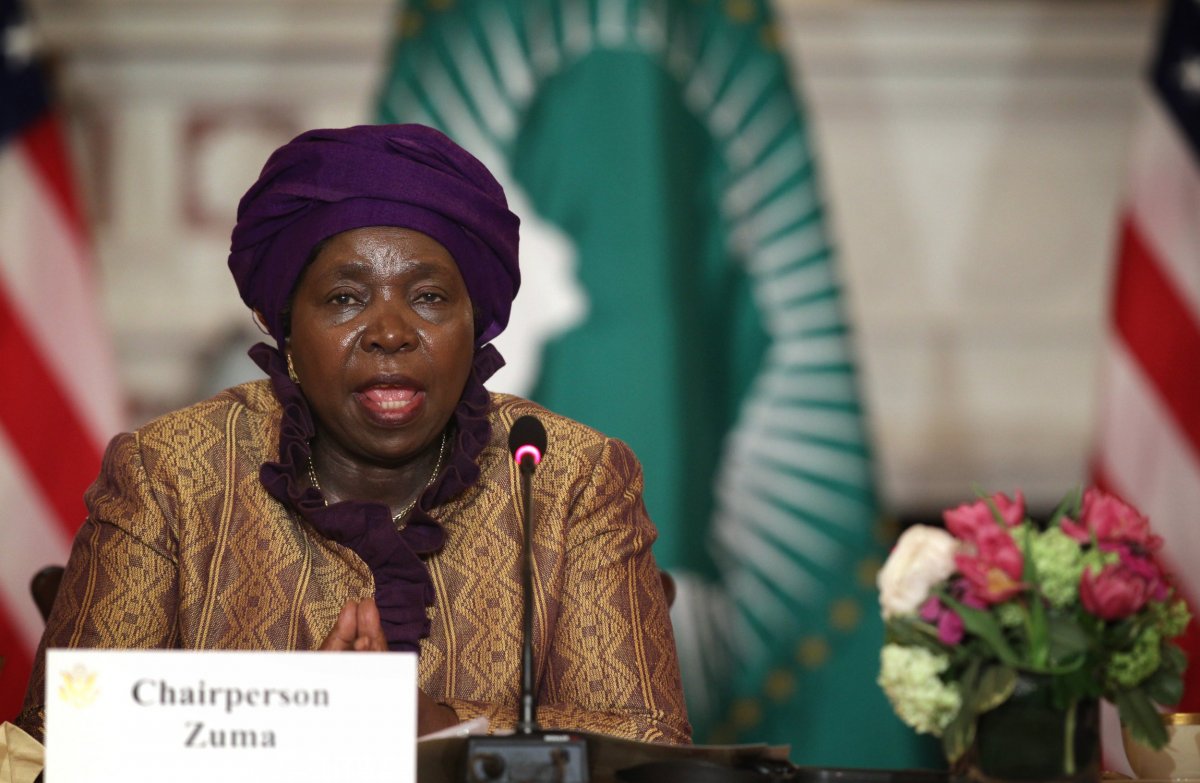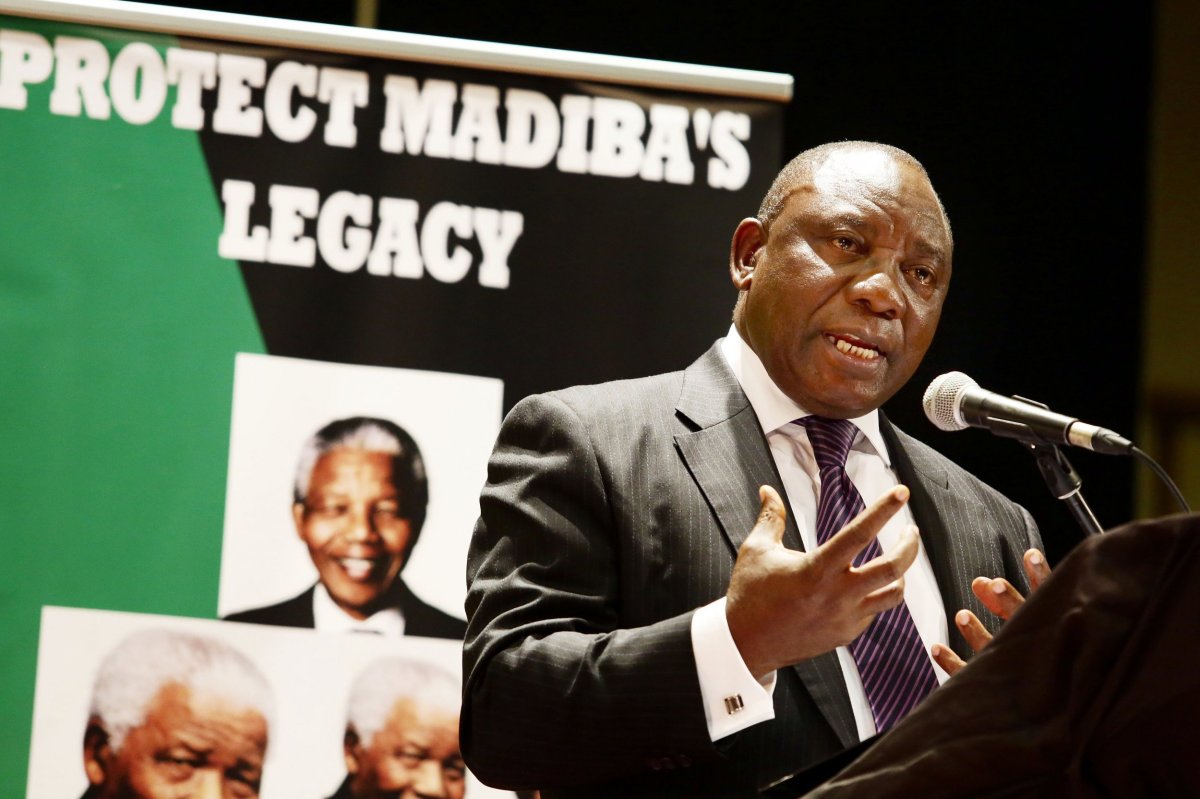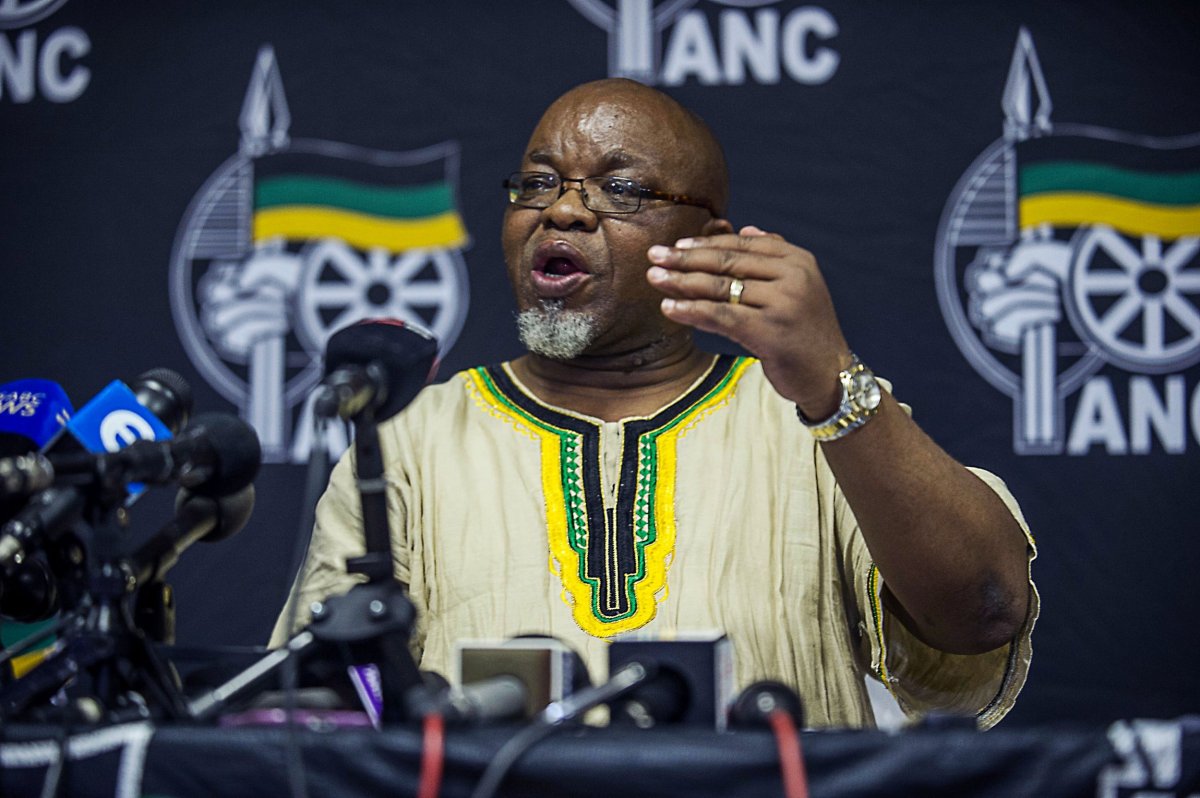
In the wake of its worst election result in more than 20 years, South Africa's governing party is getting ready for a shake-up at the top.
Despite taking more than 50 percent of the vote, the African National Congress (ANC) lost control of key urban areas—including the country's financial hub Johannesburg and the capital Pretoria—as voters turned to the centrist Democratic Alliance (DA) and radical left-wing Economic Freedom Fighters (EFF).
As a result, the ANC has indicated it is considering bringing forward its party conference—scheduled for December—in order to overhaul the party's top brass. An early conference is "not a bad idea, because it will give whatever leadership that comes out of the conference a longer period to prepare for [elections in] 2019," ANC Secretary-General Gwede Mantashe said on Tuesday.
The election results have been interpreted as damning for President Jacob Zuma, who has been dogged by multiple scandals and questions over his political decision-making in recent months. Zuma is constitutionally barred from running for the presidency of South Africa in 2019, having served two consecutive terms, but could potentially run for the presidency of the ANC for a third period, though he has said he intends not to do so.
Should Zuma decide to stand aside, who are the potential candidates to take over the leadership of South Africa's liberation party?

The Diplomat: Nkosazana Dlamini-Zuma
An ANC veteran and former minister in Mandela's cabinet, Dlamini-Zuma is currently approaching the end of her tenure as the Chairperson of the African Union (AU) Commission, a role she has held since 2012. The role has given Dlamini-Zuma—who also happens to be the current president's former wife of 16 years before they divorced in 1998—experience and exposure on the international stage and led her to be touted as a champion for women's leadership—she is the first head of the AU or its predecessor, the Organization of African Unity, first founded in 1963. But the concrete results of her tenure have not been entirely convincing—under her leadership, the AU has, for example, failed to negotiate a resolution to the conflict that broke out in Burundi in 2015.
Dlamini-Zuma served in the cabinets of three successive South African presidents—as health minister for Mandela, foreign minister for Mbeki and home affairs minister for Zuma. The outgoing AU chief had strong words for the ANC in the wake of the recent results, attributing them to weak leadership.

The Deputy: Cyril Ramaphosa
A competent businessman. A key figure in the anti-apartheid movement. An ally of Nelson Mandela. South Africa's Deputy President would seem to be a perfect fit for the role of ANC leader and, if elected, President of South Africa. Ramaphosa was part of the reception committee that coordinated the release of Mandela from prison and was a co-author of the country's post-apartheid constitution. After being beaten in the race for the ANC leadership by Thabo Mbeki, Ramaphosa resigned from politics in 1997 and built up a business empire that has seen him become one of Africa's richest men— Forbes estimated the investments guru to be worth $450 million in 2015. Ramaphosa returned to politics and became the ANC's deputy president in 2012, before Zuma's camp drafted him in as the president's right-hand man in 2014 to boost their candidate's chances of re-election.
Strongly rumored to be Mandela's choice as a future president, Ramaphosa was embroiled in scandal over the Marikana mineworkers massacre in 2012. The businessman at the time had a seat on the board of Lonmin, which owned a platinum mine near Rustenburg. Striking mineworkers were massacred by police, with 34 people being shot and killed in a single day on August 16, 2012. An official inquiry into the massacre found that Ramaphosa had emailed government ministries and mine management calling for "concomitant action" against the miners, who he said were involved in "dastardly criminal" conduct.

The Secretary: Gwede Mantashe
The left-wing Mantashe has served as the ANC's secretary-general since 2007, taking up the role at the same time as Zuma became party leader. A staunch trade unionist, Mantashe was also the chairperson of the South African Communist Party (SACP) until July 2012. The SACP is part of the so-called Tripartite Alliance—an anti-apartheid coalition formed in 1990 before the end of the system of racial segregation in 1994—which also includes the Congress of South African Trade Unions and the ANC. Mantashe was re-elected ahead of current sports minister Fikile Mbalula as the ANC's secretary-general in 2012.
In recent times, Mantashe has appeared to buck the party line by aiming veiled criticisms at Zuma. After the country's highest court ordered in March that Zuma repay the cost of controversial state-funded upgrades to his estate in Nkandla, Mantashe insisted that the party would not be used to assist the president in footing the bill. Mantashe also appeared to at least partially blame Zuma for the recent election results, saying that the "negative narrative" surrounding the president had hurt the party. (Mantashe did also say that the party leaders would take "collective responsibility" for the results and not simply recall Zuma.) During Mantashe's tenure, the ANC has recalled one president of South Africa in Mbeki in 2008—were it to do so again, Mantashe could be high on the list of potential replacements.
Uncommon Knowledge
Newsweek is committed to challenging conventional wisdom and finding connections in the search for common ground.
Newsweek is committed to challenging conventional wisdom and finding connections in the search for common ground.
About the writer
Conor is a staff writer for Newsweek covering Africa, with a focus on Nigeria, security and conflict.
To read how Newsweek uses AI as a newsroom tool, Click here.






